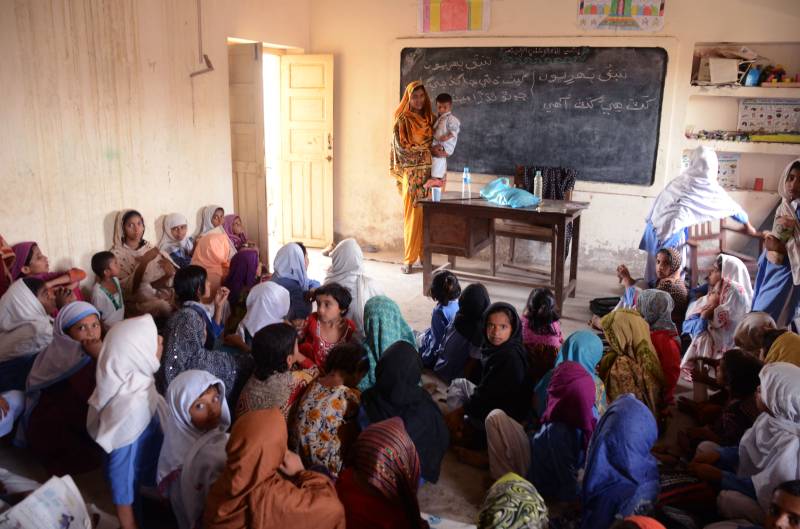Teacher quality is the backbone of Academia academia and a core element in determining the quality of the education system. Whether teachers have, or have not attained the proficiency level, delineated by the professional standards established by the Ministry of Education, provides a lens to view the level and extent of teaching quality in our schools.
My research into the place of professional standards in Pakistan attracted comments such as the following from a range of teacher educators:
“These standards are neither part of teacher education programs and nor integrated into teacher curricula. I just follow my subject’s course outline given by university to teach pre-service teachers and I don’t teach according to the professional standards.” (Male teacher)
And: “I don’t think that these standards are established from a Pakistani perspective. I am aware of these teaching standards but these standards were not designed according to the Pakistani context; they have more influence from the western standards. They have the element of subjectivity and they are also vague in nature. I think they must be revised according to the Pakistani classroom needs.” (Female teacher).
It seems that there is a reasonably common view that changing teacher education programs in Pakistan by integrating professional standards into these essentially subject content programs is complex, and even inappropriate. Teaching standards are generally perceived, however as worth achieving in the long term with the expectation that these will evolve for teachers as their professional career progress. Current programs make transparent the knowledge, skills and subject competencies necessary for teachers competence thus providing the springboard for initial curriculum and professional development. In addition, standards can help teachers to set targets (objectives), monitor achievement (assess) and develop programs that support and improve student learning (evaluate).
Based on typical reflections of teacher educators including those provided by the teachers above, it seems there is a long way to travel if the purpose of establishing professional standards for teachers is to be realised. Standards have not yet been implemented even though they were adopted seven years ago in 2009 by the Ministry of Education. Are they still credible measures of teaching performance? What are the actual performance indicators being followed currently while preparing and monitoring the performance of pre-service teachers? How is quality teaching being determined currently without recourse to these standards? Why did the Ministry of Education, rather than merely presenting a package from elsewhere, not review these standards and adapt them to the Pakistani context before making some effort to implement them? Why has the government retreated into the background rather than taking an active participatory role in the adaptation and implementation of standards? All these questions aim to cast light on the current flaws in what presents as Pakistani educational development and planning.
The National Professional Standards for Teachers were established by the Ministry of Education in 2009 with the mission to promote higher professional quality for teachers and to raise the level of teacher quality generally. These Standards have overall ten requirements, each of which encompasses three equally significant aspects: (1) knowledge, which pertains to what the teacher knows; (2) dispositions, which refers to a teacher’s behaviour, attitudes and values; and (3) performance, which is what the teacher can do and should be able to do. The purpose of the Standards was to determine teacher performance against the prescribed levels. Seven years after the publication of the professional standards, they have not been acted upon and so remain just a document gathering dust with no further action being undertaken for their implementation. It is well documented (e.g., Hattie, 2008) that the quality of teaching is the most significant variable after demographic considerations determining student performance. This is the variable that can influence change most drastically. So, in meeting the diverse needs of students in their classrooms, it is imperative that the current review into teacher quality focus on how we prepare students to become highly motivated and highly skilled teachers, .
Each year research demonstrates that the performance of children in government schools falls below acceptable levels in reading and writing skills. Low interest and achievement in mathematics is also revealed. How do our teachers measure up in terms of professional standards in these subject areas? Teacher educators are charged with the duty of sending their graduates into the classrooms as accomplished professionals. National Standards provide minimal benchmarks on which teacher educators can build their subject oriented courses to address the real difficulties faced in teaching and learning and above all, for promoting deep thinking.. It is, therefore, vital to ascertain the knowledge teacher educators have of the established standards. Therefore, the nub of my argument is the need to highlight the importance of professional standards and to ensure their comprehensive integration into teacher education programs. These professional standards must be incorporated into course profiles to give guidelines to teacher educators how teachers’ competencies can be enhanced to promote high quality classroom practice.






